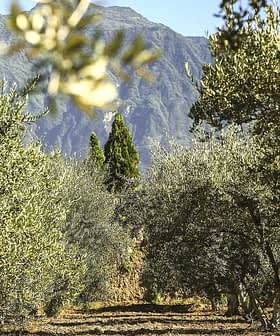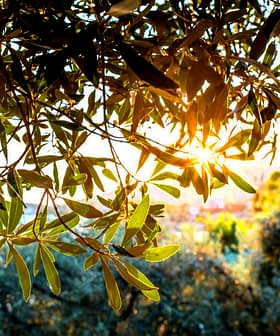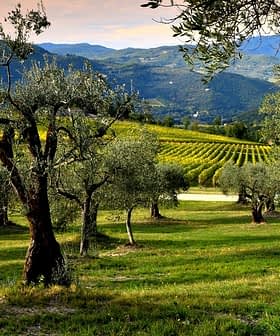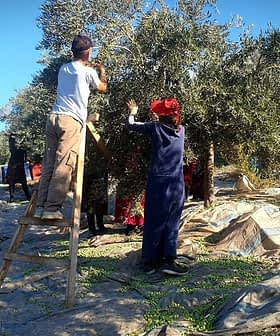Making Olive Oil in Sun-Drenched Hot Spot
While Mykonos, Santorini, and the other small islands of the Cyclades in the Aegean Sea are famous to vacationers, they also make olive oil the locals are proud of.
 Santorini, Greece
Santorini, GreeceNot many places on Earth can match the beauty of Mykonos, Santorini, and the other islands of the Cyclades complex at the Aegean Sea. And rest assured that you will come across famous actors, pop stars, and other celebrities from around the world who every summer flock to these small specks of land in the sea for a vibrant vacation.
We want to rediscover our roots in growing and producing local quality products as an alternative to the monoculture of tourism.
Tourism is the main driving force of the local economy, but not many know that there is more to it than beautiful beaches, all night long clubbing, and nonstop amusement.
The islands are practically waterless — reservoirs, a few wells, and some desalination facilities cover the demand. The terrain is harsh and arid, but the locals there manage to grow vegetables, citrus trees, vineyards, and olive trees.
According to the Department of Agriculture of the Cyclades, the local production of olive oil came in at around 430 tons for the 2016/17 harvesting season. Most of the small islands have their own olive oil mill: Syros has two oil mills and Amorgos, Ios, Milos, Sifnos, and Kimolos have one mill each that also cover the needs of other islands where no such facilities exist.
In Mykonos, ‘EROS’ is the local cooperative of wine and olive oil producers set to promote the indigenous varieties of wine and the cultivation of olive trees.
Dimitris Rousounelos, a food writer and the head of the cooperative, spoke with Olive Oil Times about making olive oil on the island and the difficulties the producers face.
“Due to the morphology of the island, there are no extended olive groves here. Olive trees are planted in confined places or on the edges of other cultivations. This is also because the land is more valuable for touristic development than agricultural purposes.” he noted.

Dimitris Rousounelos
“During the last 12 years our cooperative has given away about 15,000 olive trees and I calculate that today there are around 30,000 trees on the island. We try to occasionally water the trees despite the dry terrain. The cultivar used is the Koroneiki and we also have the Kalamon and Amfissas cultivars for table olives”, he said.
Even though the cultivation of olive trees is limited on the island, Rousounelos was very enthusiastic about it and said, “We have already organized three seminars and tasting events on olive oil. Our oil meets high standards but cannot be classified as extra virgin yet because the olives are shipped for processing to Tinos, Andros, and sometimes to mills in Attica. So the time required for processing degrades our product to lower categories”.
Harvesting on the island begins in mid-October and ends in late November, although some olives are ready to be harvested by late September.
“Several producers would like to begin harvesting sooner than usual, in order to get oil of better quality and fragrance, but they have to be synchronized with the oil mills on the other islands which open in October,” Rousounelos said.
“We hope that by next year we will have a municipal mill here. This will be a long-awaited achievement and a great boost for the local olive oil production in terms of quantity. But the best part is that it will enable us to finally make the extra virgin olive oil of Mykonos, a big plus for our everyday table and for the restaurants and hotels that will be able to serve local EVOO to their customers. We want to rediscover our roots in growing and producing local quality products as an alternative to the monoculture of tourism,” he concluded.
In Santorini, wine is the main product of the island, but according to the local agriculturist Giorgos Skopelitis, the olive trees have started to advance exponentially during the previous years.
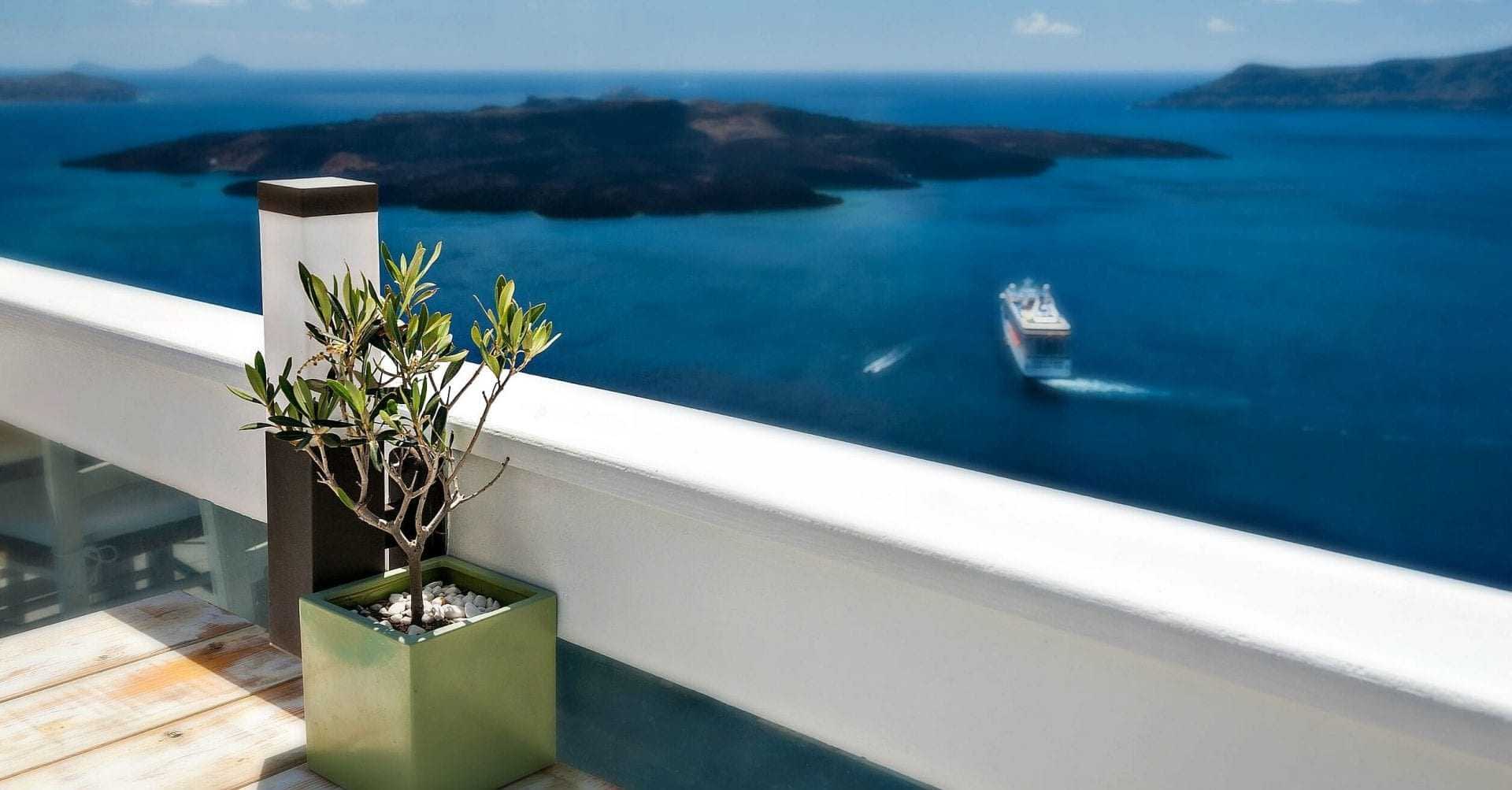
“There are a lot of olive trees on the island and they get more and more every year. What happens here is that the olive groves are scattered all around, so one cannot easily comprehend the magnitude of the groves because they are fragmented. And this is why we do not have a clear view of the exact acres utilized for the cultivation of olive trees,” Skopelitis told us.
The Koroneiki cultivar is used in Santorini and the harvest usually starts in late October. “The olive trees are not watered since water resources are scarce. After all, it is common knowledge that non-irrigated olive trees give the best oil although the oil coming out here is usually classified as virgin since we do not have the means to make extra virgin olive oil,” Skopelitis added.
“There is a small oil mill on the island which operated for a few years but is now idle because it had some problems acquiring an operating license. The local producers have their olives shipped to Naxos, Ios, or even Crete. This is obviously a problem and it would be a huge advantage for them if the mill could open again allowing them to produce olive oil of higher quality without sending the crop away.”
Mykonos, Santorini, and all the so-called small islands of the Cyclades complex have their fair share of making olive oil, either by growing olive trees or by processing olives. For the current year, a subsidy of more than €9 million ($10.74 million) of European Union and state funds will be provided to local producers as an incentive to keep their traditional olive groves and not switch to another kind of cultivation.
Their contribution to the total olive oil production of Greece may be small, but the islands show that olive trees exist even on inhospitable terrain and, with a little care and love they can give back tons of olive oil.

